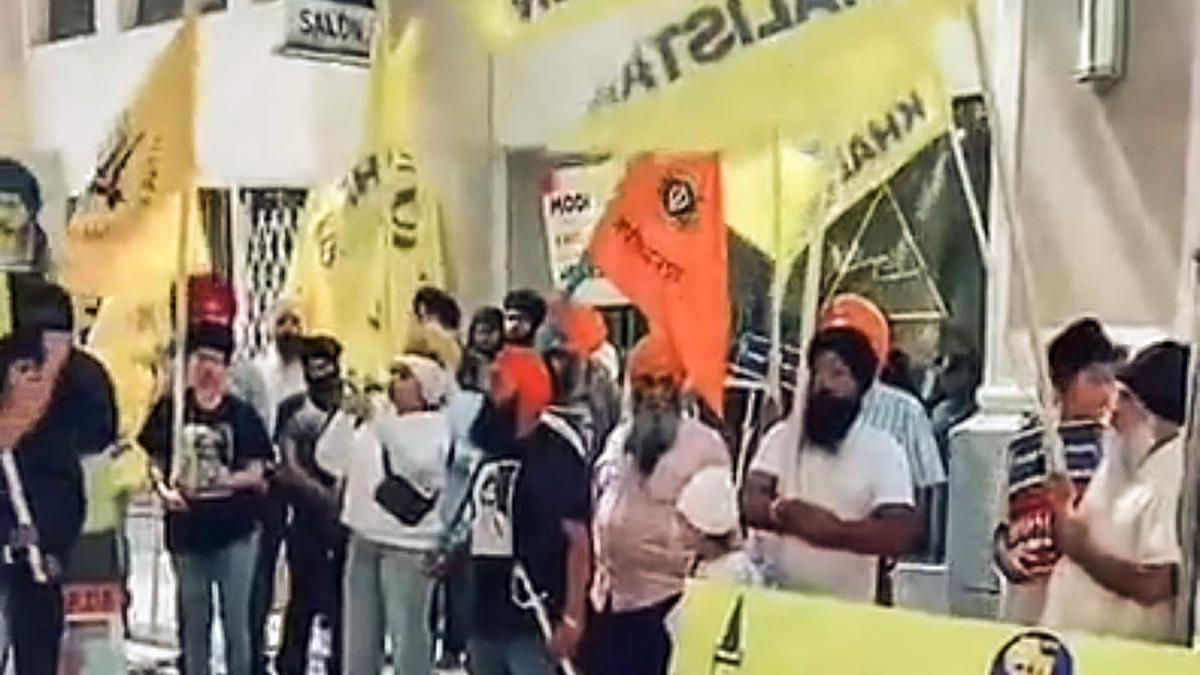
Ladies and gentlemen, we’re stepping into a distressing incident that sheds light on the importance of respect, tolerance, and understanding among communities. Imagine a place of worship, a sanctuary for devotees, marred by divisive actions. We’re talking about a Hindu temple in Canada, where extremist elements vandalized the premises and posted Khalistan referendum posters. Let’s delve into this disheartening occurrence.
A Violation of Sacred Space
Picture this: a tranquil temple in the late hours, its sanctity violated by the presence of masked individuals. The incident, captured in a video shared by Australia Today, captures the unsettling scene. Two masked men, armed with Khalistan referendum posters, take their actions to the temple. The vandalism and the message it carries not only hurt the physical space but also the sentiments of a community seeking solace and connection.
A Message of Division
The placement of Khalistan referendum posters sends a message that goes beyond mere vandalism. It speaks of division, of attempts to sow discord among communities. The temple, a place that should foster unity and understanding, becomes a backdrop for messages that seek to undermine these values. It’s a stark reminder that the actions of a few can have far-reaching consequences for many.
British Columbia’s Heartache
The incident unfolded in British Columbia province, Canada—a region known for its diversity and multicultural fabric. The act of vandalism tarnishes the province’s reputation as a harmonious space where communities coexist. It’s a reminder that vigilance against hate and divisiveness is an ongoing effort that requires collective action.
A Call for Unity
In times like these, it’s essential for communities to come together and reject the actions of those who seek to drive wedges between them. The act of vandalism may have caused damage, but the response from the broader community can be a source of healing. Unity, understanding, and solidarity can triumph over hatred.
Seeking Accountability
As the video captures the masked men fleeing the scene, the pursuit of justice and accountability becomes crucial. The vandals’ identities need to be uncovered, and the motives behind their actions need to be addressed. Such incidents cannot be brushed aside; they demand action and reflection from society at large.
Conclusion
Ladies and gentlemen, what unfolded at the Hindu temple in Canada is a somber reminder that spaces of worship should be respected and protected. As we stand in solidarity with the affected community, let’s channel our efforts towards fostering understanding and unity. Together, we can send a powerful message that divisive actions have no place in our shared pursuit of harmony and coexistence.









